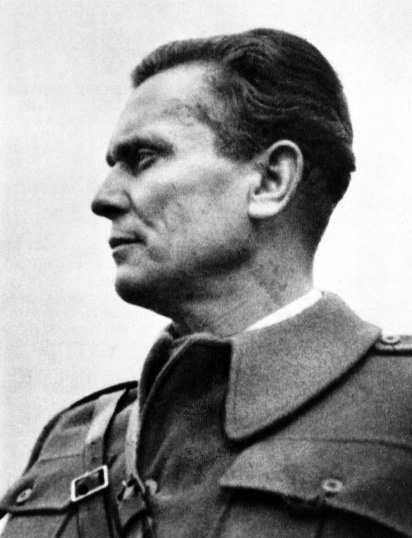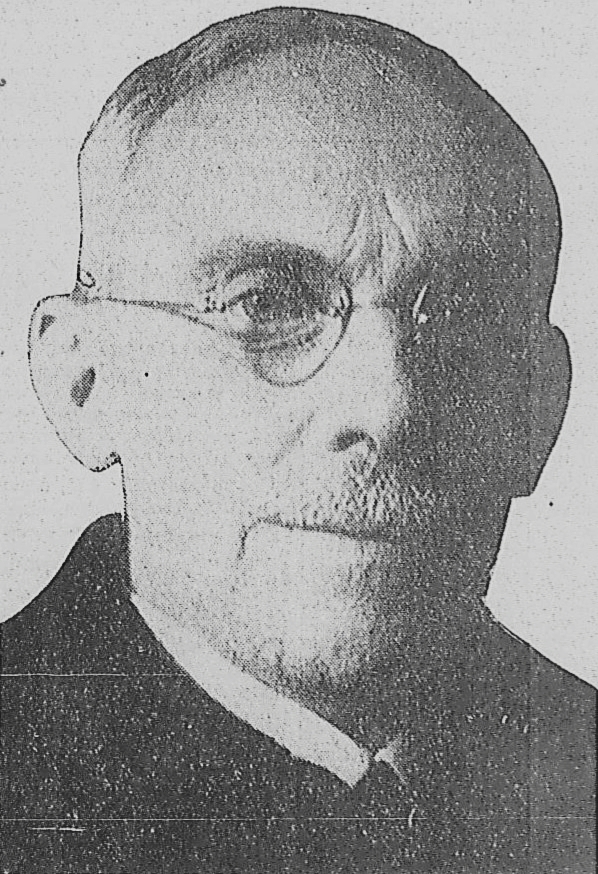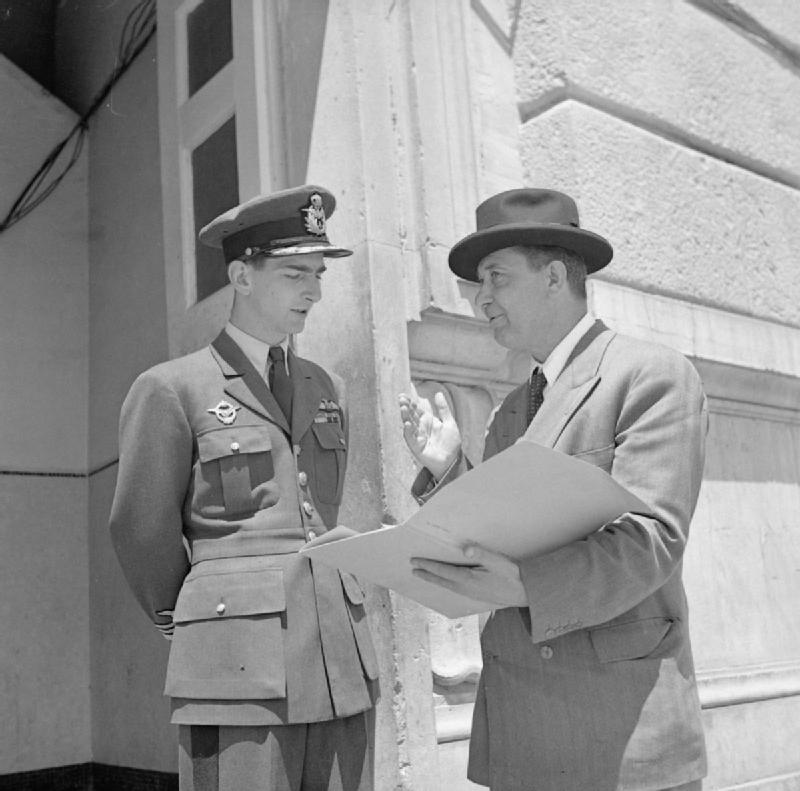|
Božidar Magovac
Božidar Magovac (13 October 1908 – 24 January 1955) was a Croatian journalist and politician, a prominent member of the Croatian Peasant Party (). A native of Zagreb, between December 1939 and April 1941, Magovac was the editor of HSS newspaper ''Seljački dom'' (Peasant Home) jointly with Juraj Krnjević, when the World War II invasion of Yugoslavia happened. In 1943, he moved to the territory held by Yugoslav Partisans and led a faction of the HSS cooperating with them against the Axis powers. He called on the HSS members to follow his example in a proclamation distributed as leaflets and broadcast by the BBC. During the second session of the State Anti-fascist Council for the National Liberation of Croatia (''Zemaljsko antifašističko vijeće narodnog oslobođenja Hrvatske'', ZAVNOH) established and dominated by the Communist Party of Croatia (''Komunistička partija Hrvatske'', KPH) as the supreme representative body in Croatia, Magovac founded the HSS executive committee ... [...More Info...] [...Related Items...] OR: [Wikipedia] [Google] [Baidu] |
Zagreb
Zagreb ( , , , ) is the capital (political), capital and List of cities and towns in Croatia#List of cities and towns, largest city of Croatia. It is in the Northern Croatia, northwest of the country, along the Sava river, at the southern slopes of the Medvednica mountain. Zagreb stands near the international border between Croatia and Slovenia at an elevation of approximately above mean sea level, above sea level. At the 2021 census, the city had a population of 767,131. The population of the Zagreb urban agglomeration is 1,071,150, approximately a quarter of the total population of Croatia. Zagreb is a city with a rich history dating from Roman Empire, Roman times. The oldest settlement in the vicinity of the city was the Roman Andautonia, in today's Ščitarjevo. The historical record of the name "Zagreb" dates from 1134, in reference to the foundation of the settlement at Kaptol, Zagreb, Kaptol in 1094. Zagreb became a free royal city in 1242. In 1851 Janko Kamauf became Z ... [...More Info...] [...Related Items...] OR: [Wikipedia] [Google] [Baidu] |
National Committee For The Liberation Of Yugoslavia
The National Committee for the Liberation of Yugoslavia ( sh, Nacionalni komitet oslobođenja Jugoslavije, sl, Nacionalni komite osvoboditve Jugoslavije, NKOJ), also known as the Yugoslav Committee of National Liberation, was the World War II provisional executive body of the Democratic Federal Yugoslavia, established on 29 November 1943 by the Yugoslav Partisans, a resistance movement and military arm of the Communist Party of Yugoslavia, led by Josip Broz Tito; in opposition to the London-based Yugoslav government-in-exile, headed by King Peter II. History The Committee was elected by Tito's Anti-Fascist Council for the National Liberation of Yugoslavia (AVNOJ), the provisional legislative body, during its second session (29–30 November 1943), in Jajce. The Committee consisted of the President, three Vice-Presidents and the required number of Trustees, and for his work fit the AVNOJ and the Presidency of AVNOJ, which is appointed by its members. During the same session, ... [...More Info...] [...Related Items...] OR: [Wikipedia] [Google] [Baidu] |
Croatian Peasant Party Politicians
Croatian may refer to: *Croatia *Croatian language *Croatian people *Croatians (demonym) See also * * * Croatan (other) * Croatia (other) * Croatoan (other) * Hrvatski (other) * Hrvatsko (other) * Serbo-Croatian (other) Serbo-Croatian or Croato-Serbian, rarely Serbo-Croat or Croato-Serb, refers to a South Slavic language that is the primary language of Serbia, Croatia, Bosnia and Herzegovina, and Montenegro. Serbo-Croatian, Serbo-Croat, Croato-Serbian, Croato-Serb ... {{disambiguation Language and nationality disambiguation pages ... [...More Info...] [...Related Items...] OR: [Wikipedia] [Google] [Baidu] |
1955 Deaths
Events January * January 3 – José Ramón Guizado becomes president of Panama. * January 17 – , the first nuclear-powered submarine, puts to sea for the first time, from Groton, Connecticut. * January 18– 20 – Battle of Yijiangshan Islands: The Chinese Communist People's Liberation Army seizes the islands from the Republic of China (Taiwan). * January 22 – In the United States, The Pentagon announces a plan to develop intercontinental ballistic missiles (ICBMs), armed with nuclear weapons. * January 23 – The Sutton Coldfield rail crash kills 17, near Birmingham, England. * January 25 – The Presidium of the Supreme Soviet of the Soviet Union announces the end of the war between the USSR and Germany, which began during World War II in 1941. * January 28 – The United States Congress authorizes President Dwight D. Eisenhower to use force to protect Formosa from the People's Republic of China. February * February 10 – The United States Seventh Flee ... [...More Info...] [...Related Items...] OR: [Wikipedia] [Google] [Baidu] |
1908 Births
Nineteen or 19 may refer to: * 19 (number), the natural number following 18 and preceding 20 * one of the years 19 BC, AD 19, 1919, 2019 Films * ''19'' (film), a 2001 Japanese film * ''Nineteen'' (film), a 1987 science fiction film Music * 19 (band), a Japanese pop music duo Albums * ''19'' (Adele album), 2008 * ''19'', a 2003 album by Alsou * ''19'', a 2006 album by Evan Yo * ''19'', a 2018 album by MHD * ''19'', one half of the double album ''63/19'' by Kool A.D. * ''Number Nineteen'', a 1971 album by American jazz pianist Mal Waldron * ''XIX'' (EP), a 2019 EP by 1the9 Songs * "19" (song), a 1985 song by British musician Paul Hardcastle. * "Nineteen", a song by Bad4Good from the 1992 album '' Refugee'' * "Nineteen", a song by Karma to Burn from the 2001 album ''Almost Heathen''. * "Nineteen" (song), a 2007 song by American singer Billy Ray Cyrus. * "Nineteen", a song by Tegan and Sara from the 2007 album '' The Con''. * "XIX" (song), a 2014 song by Slipkn ... [...More Info...] [...Related Items...] OR: [Wikipedia] [Google] [Baidu] |
Croatian Peasant Party During World War II
During World War II, the Croatian Peasant Party (''Hrvatska seljačka stranka'', HSS) splintered into several factions pursuing different policies and alliances. Prior to the German invasion of Yugoslavia, it was the most powerful political party among ethnic Croats, controlled the administration and police in Banovina of Croatia, and commanded two paramilitary organisations. After the successful invasion of the Kingdom of Yugoslavia in April 1941, Nazi Germany proposed that HSS leader Vladko Maček could rule Croatia as a puppet state. He declined, but the Ustaše agreed and proclaimed the Independent State of Croatia (''Nezavisna država Hrvatska'', NDH). Under duress, Maček called on Croats to support the regime. A splinter of the HSS and all HSS-controlled infrastructure went over to the Ustaše. The Communist Party of Yugoslavia (KPJ) and its nominally independent branch, the Communist Party of Croatia (KPH) established the Yugoslav Partisans as armed resistance against t ... [...More Info...] [...Related Items...] OR: [Wikipedia] [Google] [Baidu] |
Miroslav Krleža Institute Of Lexicography
The Miroslav Krleža Institute of Lexicography ( hr, Leksikografski zavod Miroslav Krleža or LZMK) is Croatia's national lexicographical institution. Based in Zagreb, it was originally established in 1950 as the national lexicographical institute of the Socialist Federal Republic of Yugoslavia. It was renamed after its founder, the Croatian writer Miroslav Krleža, in 1983. History The institute was founded in 1950 as the Lexicographical Institute of the Federal People's Republic of Yugoslavia (''Leksikografski zavod FNRJ'') and was renamed the Yugoslav Lexicographical Institute (''Jugoslavenski leksikografski zavod'', ''JLZ'') in 1964. Its founder and longtime director was writer Miroslav Krleža, with Mate Ujević as the chief editor. It was based in Zagreb, with branches in Ljubljana and Belgrade. After Krleža's death in 1981, the institute was renamed as the Yugoslav Lexicographical Institute "Miroslav Krleža" (''Jugoslavenski leksikografski zavod "Miroslav Krleža"'' ... [...More Info...] [...Related Items...] OR: [Wikipedia] [Google] [Baidu] |
Croatian Biographical Lexicon
''Croatian Biographical Lexicon'' ( hr, Hrvatski biografski leksikon) is a multi-volume biographical and bibliographical encyclopedia in Croatian, published by the Miroslav Krleža Institute of Lexicography. It contains biographies of prominent Croats, as well as foreigners who participated in Croatian public life and have left their mark on the history of Croatia. The project was launched in the second half of the 1970s. Seven volumes have been published so far with a total of 10,218 articles (3,524 illustrations). The Editor-in-Chief of the first volume was Nikica Kolumbić, of the second volume Aleksandar Stipčević, and since 1990 the Chief Editor has been Trpimir Macan Trpimir Macan (born August 20, 1935) is a Croatian historian and lexicographer. He was born in Dubrovnik. He studied history in Zagreb and Sarajevo, where he graduated in 1959. In 1971 he received his Ph.D. in Zagreb with a thesis ''Life and work .... Many of the biographies in the Lexicon have been researc ... [...More Info...] [...Related Items...] OR: [Wikipedia] [Google] [Baidu] |
Trumped-up Charges
A miscarriage of justice occurs when a grossly unfair outcome occurs in a criminal or civil proceeding, such as the conviction and punishment of a person for a crime they did not commit. Miscarriages are also known as wrongful convictions. Innocent people have sometimes ended up in prison for years before their conviction has eventually been overturned. They may be exonerated if new evidence comes to light or it is determined that the police or prosecutor committed some kind of misconduct at the original trial. In some jurisdictions this leads to the payment of compensation. Academic studies have found that the main factors contributing to miscarriages of justice are: eyewitness misidentification; faulty forensic analysis; false confessions by vulnerable suspects; perjury and lies stated by witnesses; misconduct by police, prosecutors or judges; and/or ineffective assistance of counsel (e.g., inadequate defense strategies by the defendant's or respondent's legal team). Some p ... [...More Info...] [...Related Items...] OR: [Wikipedia] [Google] [Baidu] |
Ivan Šubašić
Ivan Šubašić (; 7 May 1892 – 22 March 1955) was a Yugoslav Croat politician, best known as the last Ban of Croatia and prime minister of the royalist Yugoslav Government in exile during the Second World War. Early life He was born in Vukova Gorica, then he lived in Austria-Hungary. He finished grammar and high school in Zagreb, and enrolled onto the Faculty of Theology at the University of Zagreb. During the First World War, he was drafted into Austro-Hungarian Army where he took part in the fighting against Serbian forces on the Drina River. Later he was sent to the Eastern Front where he used the opportunity to defect to the Russians. From there he joined the Yugoslav volunteers fighting within the Serbian army on the Salonica front. After the war, Šubašić gained his law degree at University of Zagreb, Faculty of Law, and after that, he opened a law office in Vrbovsko. There he met Vladko Maček and joined the Croatian Peasant Party. In 1938, he was elected to the ... [...More Info...] [...Related Items...] OR: [Wikipedia] [Google] [Baidu] |
Vis (island)
Vis (; ; la, Issa, it, Lissa) is a small Croatian island in the Adriatic Sea. It is the farthest inhabited island off the Croatian mainland. Before the end of World War I, the island was held by the Liburnians, the Republic of Venice, the Napoleonic Kingdom of Italy, and the Austrian Empire. During the 19th century, the sea to the north of Vis was the site of two naval battles. In 1920, the island was ceded to the Kingdom of Yugoslavia as part of the Treaty of Rapallo. During World War II, the island was the headquarters of the Yugoslav Partisan movement. After the war, Vis was used as a naval base for the Yugoslav People's Army until 1989. The island's main industries are viticulture, fishing, fish processing, and tourism. Geography The farthest inhabited island off the Croatian mainland, Vis had a population of 3,617 in 2011. Vis has an area of . Its highest point is Hum, which is above sea level. The island's two largest settlements are the town of Vis on the island's ea ... [...More Info...] [...Related Items...] OR: [Wikipedia] [Google] [Baidu] |
Internment
Internment is the imprisonment of people, commonly in large groups, without charges or intent to file charges. The term is especially used for the confinement "of enemy citizens in wartime or of terrorism suspects". Thus, while it can simply mean imprisonment, it tends to refer to preventive confinement rather than confinement ''after'' having been convicted of some crime. Use of these terms is subject to debate and political sensitivities. The word ''internment'' is also occasionally used to describe a neutral country's practice of detaining belligerent armed forces and equipment on its territory during times of war, under the Hague Convention of 1907. Interned persons may be held in prisons or in facilities known as internment camps (also known as concentration camps). The term ''concentration camp'' originates from the Spanish–Cuban Ten Years' War when Spanish forces detained Cuban civilians in camps in order to more easily combat guerrilla forces. Over the followin ... [...More Info...] [...Related Items...] OR: [Wikipedia] [Google] [Baidu] |







